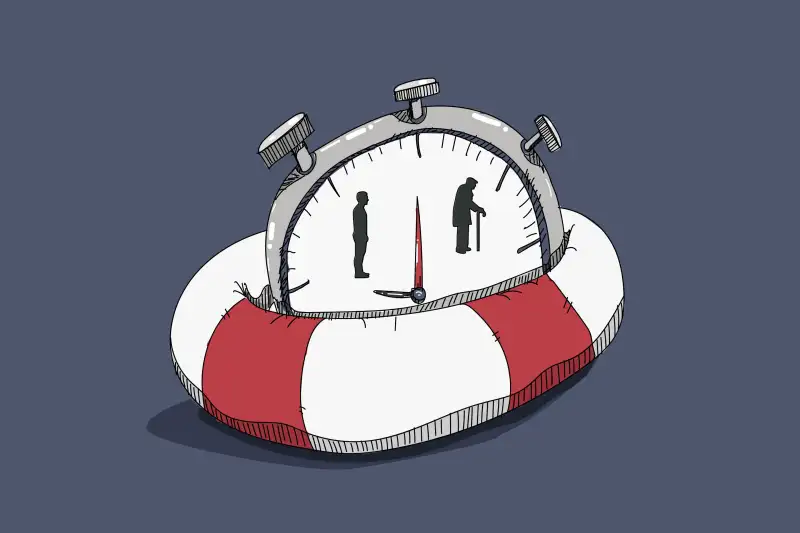Term vs. Whole Life Insurance

Buying a life insurance policy can give you the peace of mind of knowing that your loved ones will be financially protected if you were to die.
Life insurance companies offer different types of life insurance, such as term and permanent policies. Each policy has different term lengths, benefits and prices. If you’re ready to purchase life insurance but don’t know how to choose between a term or whole life policy,, read our guide below to learn more about these policies’ coverage terms and benefits.
Table of contents
- Overview of term life insurance vs. whole life insurance
- What are the differences between term and whole life insurance?
- Do you need life insurance?
- How to choose between term life and whole life insurance
- Other alternatives to term and whole life insurance
Overview of term life insurance vs. whole life insurance
Term and whole life insurance are similar in that they both offer a guaranteed death benefit. However, there are some key differences between these policies.
What is term life insurance?
Term life insurance gets its name because coverage expires after a set number of years. You can purchase a policy with a 20-year term and level premiums. This means you’ll be covered for 20 years, and your premiums will remain the same. If you die before the policy lapses, a death benefit will be paid to your beneficiaries.
Insurance companies can deny claims for various reasons, including if the policyholder dies during the contestability period that can last up to two years. During this time, the company reserves the right to review your life insurance coverage before a payout.
At the end of your term, some companies provide the option to renew the policy without needing a medical exam. If you decide to renew your policy, you can increase or decrease the death benefit amount. Remember that the insurance company can deny your request to renew a policy or increase your life insurance rates.
What is whole life insurance?
Whole life insurance remains in effect for the life of the insured.
Like other forms of permanent life insurance — including universal and variable life insurance— whole life policies have two components: a guaranteed death benefit and a savings account called the cash value. As you pay your premium, a portion of the money goes toward funding the cash value component, which you can borrow from during your lifetime.
The cash value of your whole life insurance policy continues to grow over the long term. This is guaranteed, based on a formula put forth by the insurance company. With other forms of permanent life insurance, the cash value is not guaranteed and is determined by other factors, including current insurance rates.
Some whole life insurance companies even guarantee an annual rate of return on the policy’s cash value.
What are the differences between term and whole life insurance?
If having whole life insurance is like buying peace of mind, having a term life insurance policy is like renting it.
The following comparisons can give you a general picture of the differences between term and whole life to help you choose the best life insurance for your financial needs.
Policy features
| Policy feature | Term life | Whole life |
| You can select the policy length | X | |
| Policy is renewable | X | |
| Includes a cash value component | X | |
| Payout amount is guaranteed | X | X |
| Might earn dividends | X | |
| Monthly premiums seldom change |
Policy terms
| Term Life Insurance | Whole Life Insurance |
| Premiums for a term life policy tend to be more affordable than those for a whole life policy | Premiums tend to be higher than those for a term life policy |
| Term life affordability is a result of the coverage expiring at the end of the term | Offers guaranteed life insurance premiums |
| Premiums may go up if the policy is renewed | One portion of the premium covers the policy’s cost while the other is added to the cash value component |
| If the policy is renewed with a higher coverage amount, premiums will also be higher |
Death benefit
An insurance policy’s death benefit is the payout made to the beneficiaries in the event of the insured's death. Essentially, it is the dollar amount your family will receive should you die while your policy is active.
| Term Life Insurance | Whole Life Insurance |
| Guarantees its benefit, as long as the insured has an active coverage at the time of death | The death benefit is guaranteed during the lifetime of the insured if the policy is active |
| Increasing the death benefit can result in higher premiums | If the insured takes out a loan against their policy or makes a withdrawal from the cash value and doesn't pay it back, the borrowed amount will be deducted from the death benefit upon their death. |
Do you need life insurance?
Life insurance is a good option for those who want to leave a safety net for their financial dependants, have their final expenses covered, or leave the capital to cover any unsecured debt.
The best time to purchase a life insurance policy is now (or as soon as possible) because the longer you wait, the higher your premiums will be. The younger and healthier you are, the best changes you’ll have to be approved for a life insurance policy with a substantial death benefit and manageable premiums.
Life insurance costs depend mainly on the policy type and the amount of coverage. To figure out how much life insurance you need, you should consider the following factors:
- Gender: Men have a lower life expectancy than women, and because of it, life insurance companies tend to charge men higher monthly premiums
- Age: Life insurance companies see age as a risk, making older individuals pay higher premiums
- Health: Having pre-existing conditions such as diabetes, cancer, or heart conditions will make it difficult to obtain approval and result in more expensive premiums.
- Lifestyle: Life-threatening hobbies such as skydiving or rock climbing make you a higher risk
- Weight: Life insurance companies may charge more for individuals with a higher BMI
- Cigarette use: Smokers are more likely to develop significant health issues and will always pay a higher rate than non-smokers.
How to choose between term life and whole life insurance
The choice between a term or a permanent insurance option should primarily depend on your insurance needs and your available budget.
Is term life insurance right for you?
A term life policy is a good option if you:
- Want coverage only for a certain time period: for example, if you have a mortgage, it would make sense to have term life insurance during the life of your home loan.
- Are interested in a whole life policy but cannot afford it right now: many life insurance companies offer convertible term to whole life. You can purchase a convertible term policy now, and when you can afford to, convert your policy to whole life.
- Want affordable coverage: since term life policies don’t have a cash value component and they lapse at the end of their term, they tend to be more affordable than permanent policies
- You’re not interested in the investment component of a whole life policy: since whole life policies are more expensive because of the investment component (cash value), you can take what you save on monthly premiums and invest it somewhere else or not.
Is whole life insurance right for you?
A whole life policy is a good option if you:
- Want coverage for the rest of your life: a whole life policy only lapses if the premiums aren’t paid
- Can afford higher premiums: because of the cash value component, a whole life policy has higher premiums than a term life policy
- Want to have an investment component: the cash value component can be a good option for those who have maxed out their contributions to an IRA or 401(k) plan. Policyholders can also take out loans from their investment account.
Should you use your whole life policy as an investment?
Using a whole life insurance policy as an investment is a good idea if you have already maxed out on other tax-deferred investment options like an IRA or 401(k). The investment component of a whole life policy only grows at a fixed rate established by the insurance company.
If you’re interested in learning more about how to use life insurance as an investment, check out our guide.
Other alternatives to term and whole life insurance
Permanent life insurance policies include other policies in addition to whole life. If you’re interested in a policy with a cash value component or other investment feature. In that case, you can consider:
- Universal life insurance: offers more flexibility than a whole life policy. Policyholders can change their death benefit amount and premium payments at any point without surrendering the policy.
- Variable universal policy: similar to a universal policy, a variable universal has flexible premiums and pays a death benefit to the policyholder’s beneficiaries. What makes it different is its variable investment component. Policyholders have access to various investment options, and the policy’s value can be affected by market changes. It requires a more hands-on approach than other permanent policies.
- Indexed universal life insurance: this type of permanent life insurance includes a death benefit and a cash value component. This policy accrues cash value through a stock index and might earn higher returns than other permanent policies.
Term vs whole life FAQ
What is one benefit of term life insurance over whole life?
What happens if you outlive your term life insurance policy?
What is the difference between whole life and universal life?
What kinds of deaths are not covered by life insurance?
Life insurance will not pay the death benefit to the beneficiaries if the policyholder dies:
- Performing a risky activity such as aviation, auto racing, rock climbing, scuba diving, and other life-threatening hobbies or professions,
- By suicide. Most life insurance policies cover suicide if it happens after the contestability period ends (usually two years) and
- Murder. If the beneficiary kills the policyholder, the death benefit will be paid to the contingent beneficiaries
Life insurance companies will not pay beneficiaries if the policyholder lied on the application, if the beneficiary predeceases the policyholder, or if the policyholder fails to a primary or contingent beneficiaries.
Summary of Money’s guide to term life vs. whole life insurance
Term life insurance
- Cheaper premiums
- Guaranteed death benefit
- Many policies include the option to convert to permanent life insurance
- An affordable option
- The policy expires upon reaching its term
- No cash value
- Health issues can affect your ability to convert or renew your policy
- You can only convert it to a permanent policy with the same insurer
Whole life insurance
- Guaranteed death benefit makes better financial planning
- The policy will build cash value over time
- The insured can take out loans against this type of policy
- Considerably more expensive than term life
- Loans may decrease your death benefit
Check our selection of the best life insurance companies to learn more about our top picks and their offerings.


